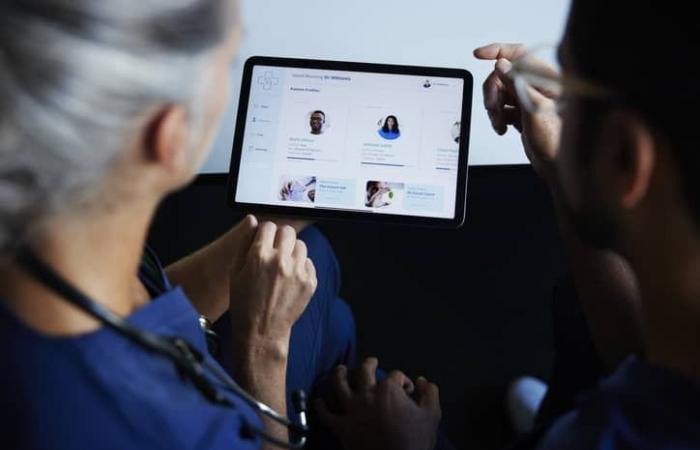1. Exploitation and valorization of health data: a lever for the transformation of establishments and care
The exploitation and valorization of health data represents strong potential around four main axes:
- Improve operational performance : improve the management of activities, optimize PMSI coding, create a predictive model on emergency activity.
- Improve conditions and quality of life at work : evaluate professional practices, propose a reasoned organization of care, improve the organization of time.
- Improve quality of care and patient experience : improve diagnosis and prevention, move towards targeted and personalized medicine, promote continuous improvement of care.
- Accelerate clinical research and innovation : obtain reliable and representative results, analyze data linked to patient cohorts, strengthen knowledge.
2. Data warehouses and AI technology: an essential coupling for the deployment of new use cases
Coupling health data warehouses with AI technologies makes it possible to fully exploit the potential of this data. The development of new uses must be based on quality data, in sufficient quantity, used within an ethical and secure framework. The creation of these warehouses is based on a data governance frameworkguaranteeing optimal management across the entire value chain. This may require preliminary management and maturity diagnostics and team acculturation work.
The steps to create health data warehouses and the implementation of AI use cases are developing, but encounter challenges. difficulties in scaling up and replicability. The diffusion of these uses will require an adaptation of organizations and an evolution of professional practices, impacting the organization and processes of establishments.
3. Feedback: the concrete impact of AI in healthcare establishments
Thanks to in-depth knowledge of hospital establishments and mastery of AI technologies, Weliom and Probayes have developed a human resources planning tool. This tool facilitates team planning over periods of 1 week to 3 months, adapting to absences and unforeseen events, and carrying out simulations to anticipate structural changes. The results are significant: reduction of 7 hours in maximum working time per week, increase of 2 hours in average working time per week and improvement of 2% in coverage of staffing needs.
Céline Le Goff, Weliom consultant, shares her experience on a project carried out with a group of health and medico-social establishments: “The objective was to define priority use cases for AI based on operational and business needs. At the end of the workshops, three concrete use cases were qualified and prioritized, including care and administrative aspects (rehabilitation planning, billing, etc.). A diagnosis made it possible to assess the organization’s strengths and areas for improvement in terms of data management and capacity to carry out AI projects, resulting in a list of actions to launch the identified projects. »
In summary, the exploitation and valorization of data by AI offers considerable opportunities for the health sector. Support from consultants, like those from Weliom, is essential to maximize these benefits. To learn more about our services and discover how we can help you take advantage of data and AI, contact us.






